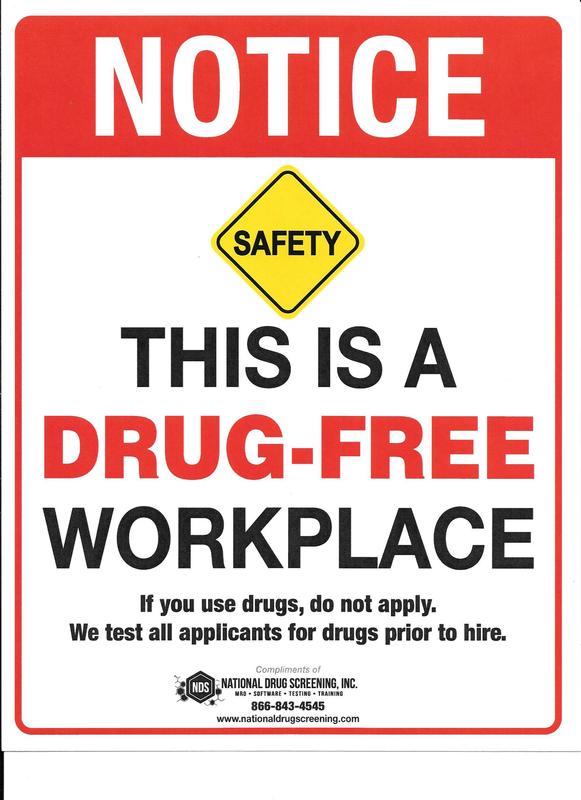Reprinted from Space Coast Business Magazine
Five Boxes You Need To Check
Now more than ever this is an important question. The latest survey conducted by the United States Department of Health and Human Services (2017) showed that 30.5 million people aged 12 or older used an illicit drug in the past 30 days (i.e., current use), which corresponds to about 1 in 9 Americans (11.2 percent). Marijuana use is up significantly across the country. In 2017, an estimated 11.4 million people misused opioids in the past year, including 11.1 million pain reliever misusers and 886,000 heroin users.
These are staggering statistics, we are not seeing illegal drug use go down, it is going up. Business owners and leaders must stand firm on preventing drug use in their workplaces so that workers are productive, healthy and safe.
If you asked 10 business owners if their workplace was drug-free, most would say yes. Hospitality and construction company business owners and managers might say no. In either case, without an effective program to cause your business to be drug-free; the questions cannot be answered correctly one way or another. This program is typically called a Drug Free Workplace Program.
What is a Drug Free Workplace Program?
First and foremost, it is not just drug testing. An effective program has five components that work together to help the company maintain healthy employees who are productive and safe. The five components are:
- A Drug-Free Workplace Policy
- Supervisor Training
- Employee Educatio
- AnEmployee Assistance Programs (EAP)
- Drug Testing
With Federal and state laws today, a policy protects the employer from liability. The policy should address the needs of the company and the laws and rules that are applicable in the areas where you do business. Medical and recreational marijuana should be addressed today in every drug free workplace policy. A clearly written policy forms the foundation of your drug-free workplace program. Policies written two, five or ten years ago should be immediately updated
Once the policy is completed and reviewed by a professional or your attorney, it should be distributed to all in the company. Supervisors need training on the policy and employees need education. Everyone in the organization needs information about the problems associated with substance misuse. Supervisors must also be trained on how to recognize signs and symptoms of employees that might be using illicit drugs or alcohol in the workplace.
Care & Concern
For employees that might have issues with substance abuse, Employee Assistance Programs (EAPs) can focus on problems related to alcohol and other drugs, and often these programs address a range of personal issues and can provide a variety of confidential services. Many companies today have EAP programs built into their health insurance plan. For smaller companies a resource page can be provided that can list information on where an employee can seek assistance. Whatever your company has for EAP, promote it and promote it more. EAP programs can help many employees but often we see these programs as the best kept secret in the company.
After the above four components are in place, a consistent program of drug testing can be adopted. Drug testing is one way to protect your workplace from the negative effects of substance misuse. A drug-testing program can also deter employees from coming to work unfit for duty; giving you safer, healthier and more productive employees.
Drug free workplace programs help your organization comply with federal and state regulations and insurance carrier requirements. These programs improve workplace safety and reduce costs from the misuse of alcohol and other drugs in the workplace. Take a stand on drug abuse as it relates to your business, a best practice is to be drug free. Click for more information on employer drug testing programs.







